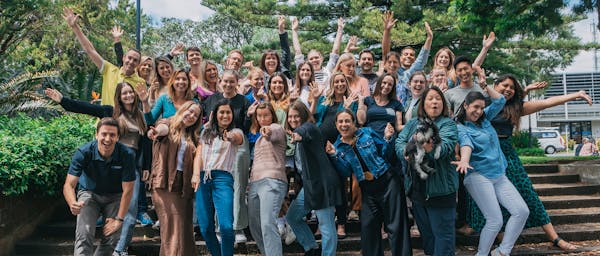I truly grew,I felt happy,it helped me to heal myself and also help people.It was that great and important.
My advice is: don’t hesitate,this was truly the best because I could be so included locally which is the best way to travel and help people.

Ecological Park Rehabilitation Project in South Korea - Seoul
Purpose
Start dates
Duration
Volunteer hours
Age
Accommodation
Who is going?
Group video calls
Once you have secured your place, join regular video calls to meet your Program Manager and other volunteers before your trip.
This program is ideal for:
Volunteers who enjoy working outdoors, getting their hands dirty and who are passionate about conservation. No previous experience is required as you’ll be working alongside Park Managers and it is essential to have a flexible attitude and be open to working in a diverse cultural setting.
Project details
Get involved in rehabilitating and preserving South Korea’s first-ever ecological park, Yeouido Saetgang Ecological Park. In this volunteer project, you will get to collaborate closely with park managers, providing assistance through initiatives focused on sustaining the natural flora, habitats, and the overall environment of the park.
What to expect and how you'll make an impact
As a volunteer, you’ll join a supportive and inclusive team, engaging in diverse tasks that ensure a fulfilling and enriching experience. Work closely with experienced Park Managers who will provide you with comprehensive training and guidance, allowing you to make a meaningful difference while creating unforgettable memories.
South Korea, a highly industrialized nation, faces a myriad of environmental issues stemming from rapid economic growth, urbanization, and industrialization. These issues encompass air pollution, water pollution, waste management, and the impacts of climate change
The tasks in the Ecological Park Rehabilitation project can vary day-to-day, and may include:
- Planting young seedlings
- Planting tropical trees
- Removing invasive species
- Maintenance work in the plant nursery
- Planting terrestrial trees around sites.
- Monitor the wetland environment
- Build environmentally friendly fences, pathways for animals, build bird’s nests
The project will provide you with boots and gloves and all other equipment needed.
Why do Ecological Park Rehabilitation volunteering in South Korea with IVHQ?
While taking part on this project you’ll be adding value to the local community, while also developing personally and professionally by:
- Helping with the recovery of the park’s ecology and environment.
- Learning about the Han river and its meaning to Koreans.
- Building your resume for careers in environmental science, conservation, and related fields.
- Gaining practical skills in environmental conservation, including planting, habitat restoration, and wildlife monitoring.
Volunteer requirements
- Volunteers under the age of 16 must be accompanied by a parent or guardian to participate in this program.
- Volunteers aged 16 or 17 on their program start date are required to provide IVHQ with parental consent in order to participate in the program, and may be asked to provide additional documents to the local team.
- All volunteers aged 13+ are required to provide a criminal background check to IVHQ prior to departure. Those aged 13-17, if unable to obtain a criminal background check, can provide two character reference letters instead.
- All volunteers are required to have adequate volunteer travel insurance.
- To respect the local culture and customs in South Korea, volunteers should be aware that they’re unable to have anything obstructing their face while at their volunteer placement.
- All volunteers must speak fluent English.
Are you eligible to volunteer?
Submit a free application so we can confirm your eligibility and check availability for your preferred dates.
Not sure which program to join?
Get personalized recommendations >
Who is going?
Group video calls
Once you have secured your place, join regular video calls to meet your Program Manager and other volunteers before your trip.
South Korea photo gallery





























































































Academic course credit
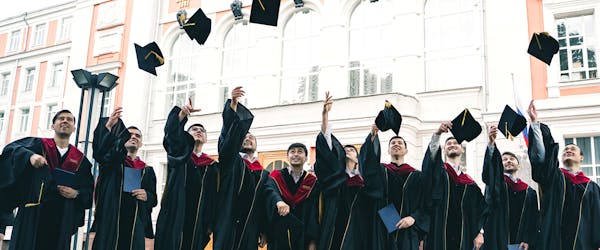
Academic course credit
Gain course credit from your college or university and meet your academic requirements when completing a volunteer abroad program with International Volunteer HQ!
Learn about course creditLocation

Location
Discover the Land of the Morning Sun
Located in the capital of South Korea, Seoul is a melting pot of rich culture, high-technology, and exquisite cuisine. During their free time volunteers can visit Gyeongbokgung Palace, Namsan Tower, the UNESCO Heritage site of Changdeokgung Palace and Huwon (Secret Garden), or the bustling Myeongdong shopping district.
Beyond Seoul, volunteers can visit Jeju Island, explore Busan, or Gyeongju (known as the “Museum Without Walls”). Try their hand at adventure sports or experience a Buddhist temple-stay and immerse in centuries old culture and religion in the country.
Fun Fact: South Korea has one of the fastest internet connection in the world. You never have to worry about connectivity when you’re traveling in the country.
Arrival and orientation
The program orientation begins every Monday, and volunteers need to arrive in Seoul on the Sunday before program orientation.
After registering for the program, please book your flights to the Incheon International Airport (ICN) in Seoul on the Sunday before your program orientation. Your airport train ride to the accommodation is included in your program fee. Please note that this service is offered between 10:00 AM to 5:00 PM.
When you arrive, you will be greeted at the airport by a member of the local team. The airport is a 1-hour train ride from the accommodation. If there are volunteers arriving within a few hours of your flight, the local team will wait and transfer volunteers to the accommodation altogether. Your program fee covers your accommodation and includes the night before your program orientation.
If you are traveling to South Korea before your volunteer program, we can arrange for you to be picked up at a pre-arranged destination in Seoul, the day before your program orientation. You also have the option to make your own way to Seoul.
Orientation is hosted by the South Korean local team. There are two options for the orientation of the South Korea program:
1-day Orientation:
Orientation begins on your selected start date and covers everything you need to know about your volunteer program. You will have an introduction to the South Korea Program and the local staff, along with basics around South Korean customs, rules, expectations, and safety.
This will be followed by a tour of the local area to show volunteers key spots like supermarkets, ATMs, and currency exchange centers. The local team can also assist in obtaining a local SIM card with data (LG U+).
Afterward, you will join a project-specific meeting as part of the project preparation you’ll need to complete for the following day.
5-day Introduction Week:
The Introduction Week begins on the morning of your chosen start date and runs for the first five days of your stay. It is an excellent way to kickstart your volunteer abroad experience, and it covers everything you need to know for your volunteer program in South Korea.
Plus, you’ll learn more about the culture and tick off some must-do South Korean experiences, including calligraphy lessons, carving an authentic Korean stamp, visit to the COEX mall and Jogyesa temple, a Korean cooking class, and more! The Introduction Week will allow you to meet other volunteers and swap contact details for weekend travel and socializing.
Volunteer schedule example
Weekdays
Start times and daily workload depends on the project that you are volunteering on, with some beginning in the morning and some in the afternoon. A typical schedule is as follows:
| 7:30 AM - 8:00 AM | Breakfast at the accommodation. |
| 8:00 AM | Travel to placement to join local placement staff and begin work on your project. |
| 12:00 PM | Lunch. Volunteers either eat lunch at the volunteer accommodation or, in some cases, at their placement (either a packed lunch or at a nearby restaurant). |
| 1:00 PM | Afternoon placement work begins. |
| 3:00 PM | Afternoon placements usually end. Volunteers are free to return to the volunteer accommodation, plan for the following day’s activities or use their free time as they wish. |
Weekends
Volunteers have the weekends free and there is no shortage of things to do in Seoul or around South Korea.
For volunteers who prefer tranquility, various Buddhist cultural experiences and meditation are available at the accommodation. Conversations with monks are also possible.
For more active volunteers, Hongdae, South Korea’s top youth street, is just a 10-minute walk away, where you can enjoy cafes and a youthful atmosphere. To visit other places like Gangnam, the subway from the accommodation can take you anywhere.
Volunteers can make travel arrangements once in South Korea, with the advice and guidance of the local team.
Accommodation and WiFi
You’ll be staying in a temple, located in the heart of Seoul, the trendiest and most vibrant area Hong-Dae.
Living conditions are comfortable with air conditioning for the hotter months and heat for the cooler months. Volunteers can expect to share a dormitory-style room with up to five other volunteers. These bedrooms are separated by gender with shared hot water showers and western toilets (also separated by gender). There is a lounge area, as well as a dining area for volunteers to hang out and enjoy their meals together.
The accommodation allows volunteers to access the famous ‘tea bar’ for complimentary tea from 9am to 10pm. Meditation sessions are also held every morning in the beautiful zen hall which volunteers are welcome to join.
There is WiFi available at the volunteer accommodation, so volunteers can easily stay in touch with family and friends at home.
Private room upgrades to a single room is also possible for an additional cost. These are subject to availability and once you have registered you will be able to request an upgrade. These are located within the temple on the same floor as the dorm rooms.
For groups, couples, families who wish to book a private room upgrade, also have this option but it will be at a nearby hotel as the temple private rooms are single beds only.
Please note that the accommodation is within a temple and therefore volunteers are expected to be quiet after 10PM. It is important to note that volunteers are unable to consume alcohol or meat at the guesthouse.
If you wish to arrive earlier than your recommended arrival date or spend extra nights after your program, we can arrange additional nights of accommodation for you at an additional cost. You can book extra nights via your profile after registration, subject to availability.
Meals
Volunteers are served a mixture of South Korean and western dishes, with a ovo-vegetarian base. Volunteers will have the opportunity to experience rich and varied Korean cuisine, celebrated for its emphasis on balance, health, and seasonality. Korean meals are typically based around rice and are accompanied by a variety of side dishes predominantly made from vegetables.
Breakfast at the temple includes traditional temple food, focusing on simplicity and vegan ingredients, with options for Western-style breakfasts such as cereal and toast also available. This meal is typically accompanied by tea, coffee, and fresh fruit.
Lunch will typically be dishes that will consist of a mix of:
- Kimchi (fermented vegetables, usually cabbage, which is a staple in every meal)
- Bibimbap (a mixed rice dish with assorted vegetables, often topped with a fried egg and seasoned with spicy gochujang sauce)
- Doenjang jjigae (a hearty stew made with fermented soybean paste, tofu, and vegetables)
- Bulgogi (thinly sliced beef, marinated in a sweet and savory sauce, then grilled or stir-fried)
- Japchae (sweet potato noodles stir-fried with a mix of vegetables and sometimes meat)
- Western option typically includes bagels
Purified drinking water is also available in the accommodation; we do not recommend that you drink the tap water.
Volunteers are provided with breakfast and lunch daily. If volunteers wish to eat out for dinner, there are some local restaurants to suit different tastes and budgets. Tuesday to Thursday evenings, volunteers can visit Gwangjang Market, a renowned market known for its wide array of traditional Korean street food. This provides an excellent cultural and culinary experience, sampling foods like mung bean pancakes (bindaetteok), spicy rice cakes (tteokbokki), and stuffed squid.
If you have special dietary requirements, please let us know when you apply so that we can make arrangements for you. However, it’s essential to prepare for some flexibility due to the possible limits of resources at this location. We will do our best to see that you are well taken care of.

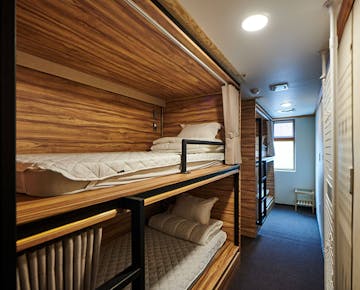

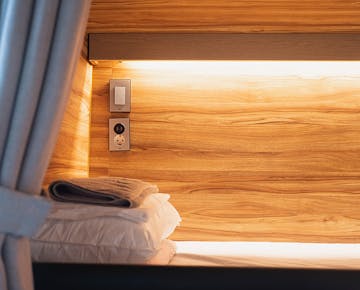



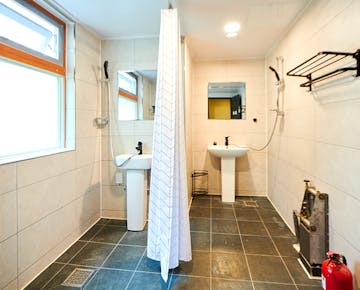

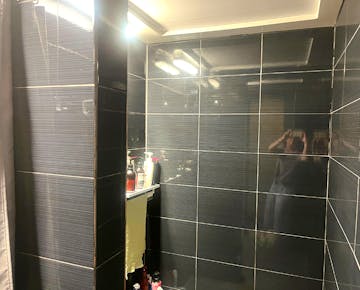
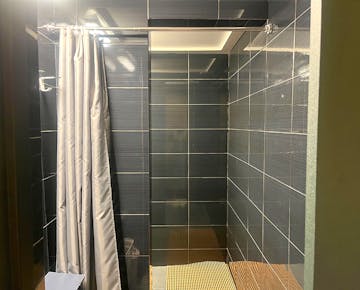

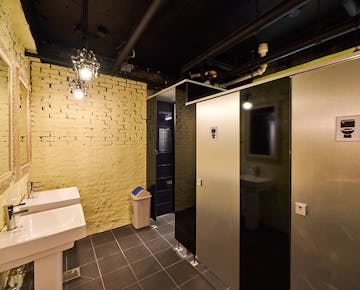

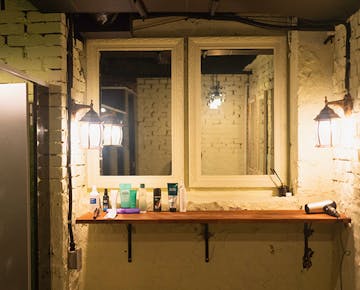






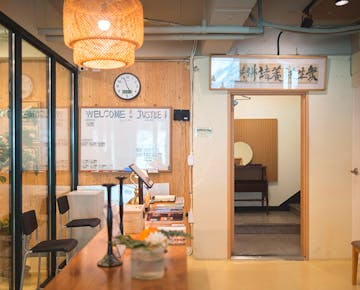
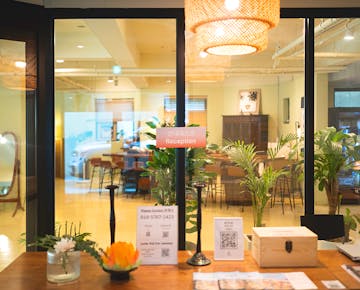












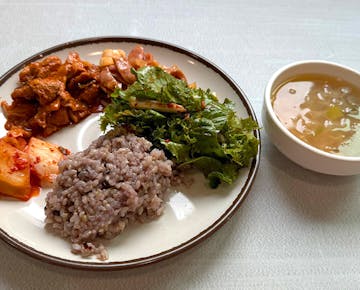
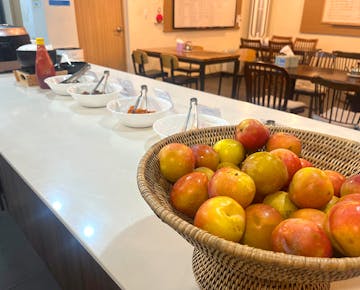
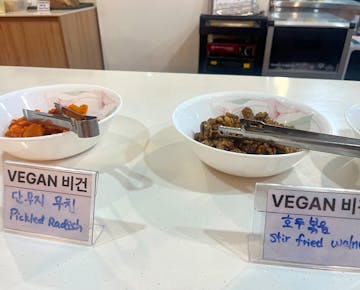
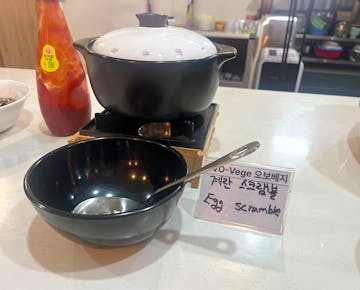


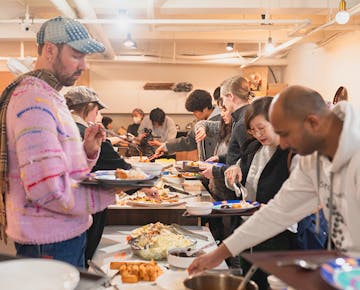
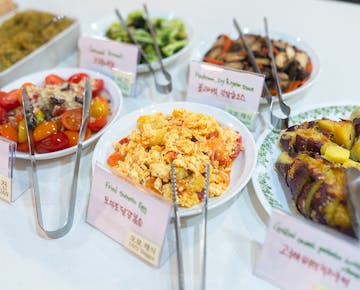





Pricing
Spots are limited. For a Registration Fee of just US$299 (approximately AU$508) you secure your spot and unlock all our preparation and training tools.
You don't need to worry about paying your Program Fee until you get closer to your start date.
Duration |
Program FeeDue 30 days before you start, or within 48 hours if you register inside of 30 days. Covers the cost of hosting you.
|
|---|---|
| 1 week | $667 Equivalent to $95/day |
| 2 weeks | $1,244 Equivalent to $89/day |
| 3 weeks | $1,821 Equivalent to $87/day |
| 4 weeks | $2,398 Equivalent to $86/day |
| 5 weeks | $2,974 Equivalent to $85/day |
| 6 weeks | $3,551 Equivalent to $85/day |
| 8 weeks | $4,705 Equivalent to $84/day |
| 10 weeks | $5,859 Equivalent to $84/day |
| 12 weeks | $7,013 Equivalent to $83/day |
- All programs attract a Registration Fee of US$299 (approximately AU$508) in addition to the Program Fee. This covers all pre-departure support services.
- A 5% international banking fee is added at point of payment.
- Recommended spending money: Volunteers in South Korea generally find US$150 to be sufficient for weekly expenses, including transport and miscellaneous spending.
- Any changes or cancellations within 14 days of your start date are subject to a US$150 late change/cancellation fee.
- Breakfast and Lunch
- Airport Pick-up
- Accommodation
- 24/7 in-country emergency support
- In-country program orientation
- Pre-departure support from your Program Manager
- Personalised preparation tools, guides and check lists
- Access to IVHQ’s preferred insurance and flights partners
- Comprehensive in-country day to day support and guidance
- Discounts on travel and tour add-ons
- Certificate of International Volunteer Service
Learn more about what's included in your IVHQ Registration Fee and Program Fee.
- Dinner
- Return to the airport when your program finishes
- Transport to and from your volunteer placement each day
- Flights
- Visa (if required), travel insurance (mandatory), vaccinations, criminal background check.
- Personal spending money for snacks, laundry, public transportation, drinks and leisure activities during your free time.
Popular add-ons & experiences in South Korea
Take your volunteer experience to the next level with these popular add-ons and experiences. Explore your options below and learn how to book them once you've been accepted onto the IVHQ South Korea program.
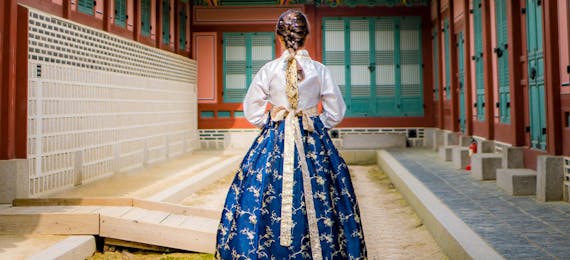
Learn more about South Korean culture and tick off some must-do Seoul experiences
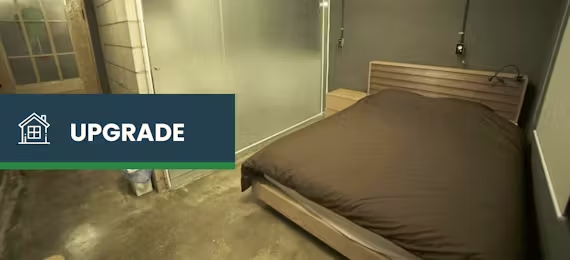
Do you want your own private room in a hotel while volunteering in South Korea? Enjoy your own private space in comfort and style during your volunteer experience, with IVHQ’s affordable accommodation upgrade.
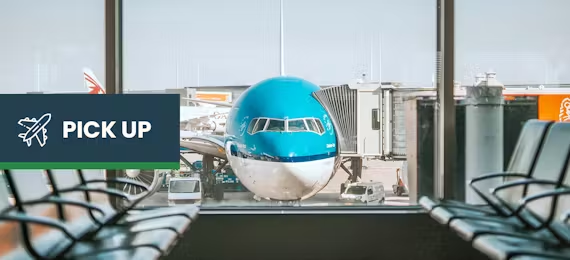
If you’re arriving outside the airport pick up dates/times, book this add on now!
Check what's required to visit South Korea
Safety and support
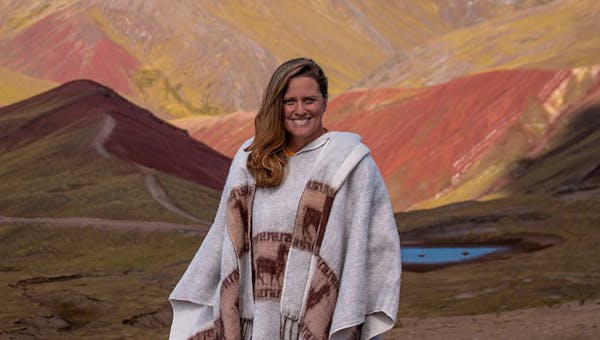
Safety and support
IVHQ follows best practice and industry-leading health and safety procedures, which are regularly reviewed and optimized as part of the B Corporation recertification.
- All volunteers encouraged to complete our interactive pre-departure training.
- All local teams trained on best practice volunteer management & First Aid.
- All IVHQ programs are required to adhere to IVHQ's Risk Management Policy.
- All volunteers have access to 24/7 in-country support from our local team.
Essential country information
Essential country information
| Capital | Seoul |
| Population | 9.78 million |
| Languages | Korean, English and Mandarin |
| Currency | South Korean won (SKW) |
| Time zone | UTC+09:00 |
Weather and climate
Seoul is located in the northwest of South Korea, a short distance from the coast of the Yellow Sea, which has a continental climate. This means Seoul has a hot and humid climate during the summer season, with cold and dry weather during the winter season. Spring and autumn are mild and short in duration. The average annual temperature is 12.8°C. The coldest month is January with -1.9°C, the hottest month is August with 26.1°C, and the annual temperature difference is very large with 28.0°C.
What recent volunteers said about their IVHQ experience
The preparation I received from IVHQ was thorough and the video calls were most helpful!
The local support team was excellent, they went above and beyond my expectations, and clearly, they enjoyed what they were doing.
I personally gained satisfaction from being a part of something that will benefit young children and which will hopefully allow them to develop into mature adults.
The meals were excellent and I enjoyed eating the local food.
I would strongly recommend this program to anyone thinking of doing something different and wanting to see how other people live.
My time volunteering allowed me to contribute directly to the community I worked with. Whether I was teaching, building infrastructure, or assisting with healthcare initiatives, I felt my skills were put to good use, helping people improve their lives. I’m proud to know that the work we did had a lasting effect, from providing better education to fostering a more sustainable environment. It’s incredible to think that my efforts were part of something bigger, creating long-term, positive changes in the community.
The personal fulfillment I’ve gained from volunteering has been incredible. Knowing that I’ve made a tangible difference in someone's life gives me a sense of purpose that is hard to find elsewhere. The gratitude expressed by the people I helped and the deep connections I formed have made this experience unforgettable. It’s a feeling that continues to motivate me to stay involved in social causes and pursue work that aligns with my values.
Volunteering helped me see myself as a global citizen. I feel more connected to the world now, understanding the challenges that people in different parts of the world face, and realizing how much we all share. The cultural exchange I experienced, through learning from others and sharing my own background, was enriching and eye-opening. Volunteering has truly transformed my outlook on life. The lessons I’ve learned, the people I’ve met, and the contributions I’ve made have all shaped me into a more compassionate, resilient, and purposeful individual. I can’t wait to continue giving back in meaningful ways.
The support they provide is wonderful for a solo traveler, it really helped me feel confident in engaging in the program and making the most of my trip.
To read all reviews, visit our reviews page.











































